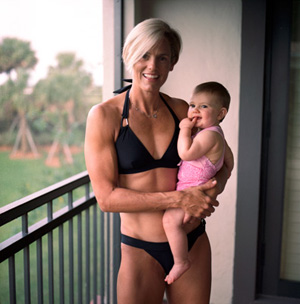
It’s not just the pressure from fashion magazines and the Hollywood elite to be thin. For athletes, being thin means more. From making your weight to increasing your speed, the pressure for athletes to keep their weight at a certain level equates to pleasing coaches and securing a victory.
Even though men are not totally immune from eating disorders, by and large, the majority of eating disorder cases affect females. Most often, it strikes females in the late adolescent and college years and comes in the form of anorexia nervosa or bulimia. According to the organization Athletes with Eating Disorders, female athletes are at a double risk for developing an eating disorder. On one hand, she has the constant social pressure to be as thin as a model in a magazine or an actress on television; as an athlete, her sport often overvalues performance, low body fat, and promotes an idealized, unrealistic body size. Female athletes that participate in sports that value appearance and a lean body like figure skating or gymnastics, are more prone to developing an eating disorder.
 When an athlete steps up and admits of a past or current eating disorder, she (or he) should be lauded for their courage and openness. One such sports figure is swimmer Dara Torres. Dara, who just also happens to be 41 and a mother of a toddler, is about to vy for a gold medal at her fifth Olympics this summer in Beijing. In a recent interview, she openly discussed the pressure to be thin and make weight as a swimmer back in her college years. When the scales were tipping to high for her coaches’ likes, a friend in her dormitory showed her how to be a bulimic.
When an athlete steps up and admits of a past or current eating disorder, she (or he) should be lauded for their courage and openness. One such sports figure is swimmer Dara Torres. Dara, who just also happens to be 41 and a mother of a toddler, is about to vy for a gold medal at her fifth Olympics this summer in Beijing. In a recent interview, she openly discussed the pressure to be thin and make weight as a swimmer back in her college years. When the scales were tipping to high for her coaches’ likes, a friend in her dormitory showed her how to be a bulimic.
Dara’s bulimia lasted for about five years and during those years as a bulimic she competed in the 1988 Olympics and was ranked Number One in the world for 100 freestyle. But she placed seventh in the ’88 Olympics. When she decided to try out for the ’92 Olympics team, she realized that she could never make it if she continued on with her bulimia. Even though she was making weight, she had no energy. So Dara decided to quit. Just like that. Cold turkey.
Fast-forward 16 years and one pregnancy later and you have Dara’s inspiring physical and mental condition sending a clear message to all of us, including her young daughter: If you treat your body with respect and protection, its power can surpass your wildest expectations.

Heather, thanks for great post celebrating Dara Torres recovery from her struggle with bulimia.Recently, the Center for Eating Disorders at Sheppard Pratt posted an article discussing pressures put on athletes to maintain a certain body image, and the health risks involved.
To read the article you can go here: http://eatingdisorder.org/blog/2008/09/12/hungry-for-gold-the-hidden-epidemic-of-disordered-eating-among-athletes/